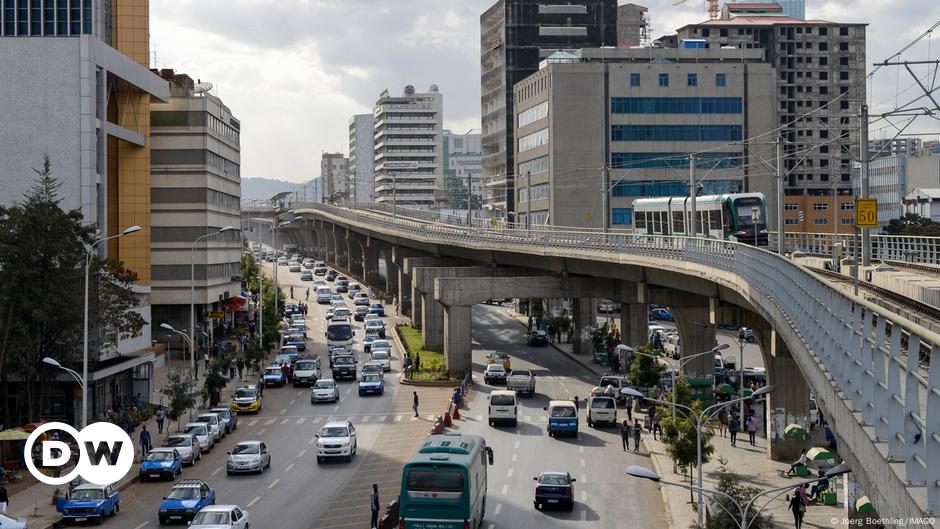The 26 poorest nations in the world are more heavily in debt than any time in the last 18 years, according to a new report. Climate change and conflict are major drivers of poverty in the affected countries.
The World Bank published a new study late on Sunday highlighting 26 countries that “are in deeper debt than at any other time since 2006.”
The list includes Afghanistan, Yemen, Syria, and North Korea. Most of the other nations are in sub-Saharan Africa, and include Ethiopia and Chad.
With an annual per capita income of less than $1,145 (€1,050) a year, the World Bank said these countries “are poorer today on average than they were on the eve of COVID-19,even though the rest of the world has largely recovered.”



I’m pretty sure most countries are deep in debt… fiscally we’re still feeling pain from lockdowns and emergency pandemic spending.
However many of the rich countries are in debt in currency they control. The US, China and the EU mostly borrow in dollar, RMB and Euro. So if they have a massive debt crisis they just print a lot of money and can pay back the debt. That comes with inflation, but that is not that bad.
The poorest countries in the world mainly borrow in USD, which they can not just print. They have to net export to get USD to pay back debt. Add to that other massive problems. Afghanistan, Yemen, Syria and Ethiopia all have ongoing civil wars, Chad is landlocked and the country it would trade through is currently in a civil war. North Korea is sanctioned to hell and back. That makes paying back any debt much harder.
The IMF is a mafia. Forcing countries into debt is a policy choice, not an ethical choice.
It’s not the IMF causing this. China’s belt and road initiative saddled many 3rd world countries in Asia and Africa with infrastructure projects that were poorly scoped, planned and built with no hope of paying for themselves.
China’s loans are made outside of the IMF. Countries in need of debt relief have not been granted any by China. The IMF by extension is not going to take a haircut on loans to those countries if China doesn’t shoulder some of the responsibility for the loans they made as well.
https://www.politico.com/news/2023/04/11/china-lending-imf-world-bank-00090588
The IMF still controls the global south’s access to money. They are still driving global direction of debt discussions. They still require endebted countries to cut social spending and open up to privatization. Even BRICs money, like from China, as you state, is beholden to IMF approval.
https://www.theinteldrop.org/2024/10/02/brics-and-the-imf-debt-traps-what-can-the-contingent-reserve-arrangement-do-for-the-global-south/
https://www.aljazeera.com/opinions/2024/10/4/the-global-souths-poor-should-not-be-subsidising-the-imf
https://chinaglobalsouth.com/analysis/imf-good-china-debt-trap-🤦🏾/
China and the BRICS countries are piloting a new path forward with the attempt to make the world more economically equitable. Anything that upsets the status quo will get negative press from the likes of politico.
Even BRICs money, like from China, as you state, is beholden to IMF approval.
That is not at all what I stated. China’s loans fall outside of the control of the IMF.
Interesting choice of words, China is charting a new path forward by refusing to negotiate debt relief for third world nations and seizing their strategic assets. However it is very much not economically equitable.
As stated before the IMF is not going to negotiate debt relief for these nations as long as China does not do the same. Western countries are not going to take a loss on loans they made to subsidize China’s economic imperialism.
There’s a lot of disagreement in the modern world about the validity of MMIT and how “real” debt is - but the debt in first world countries is still a real issue and essentially acts as a wealth transfer to the rich - private individuals and companies own that debt and earn interest on it that tax payers (bear in mind that the rich contribute relatively little overall taxes) have to service.
The deeper into debt we go the less spending power we’re left with.
Not necessarily. As long as the debt is invested well, it is absolutly fine. If the debt is used to increase the size of the economy, that means more taxes and hence the debt can pay itself. The other scenario is the government investing into something, which increases in value. Keep in mind that the governments rates are lower the private rates, so if a government builds a lot of housing for its citizens, that increases debt, but is still cheaper then everybody building their own housing themself. Similar effects can be had by buying companies.
Debt is a tool, it can be used for both good and bad. It really depends on how good the government is.
Ok but the govt is funding genocide, not housing.